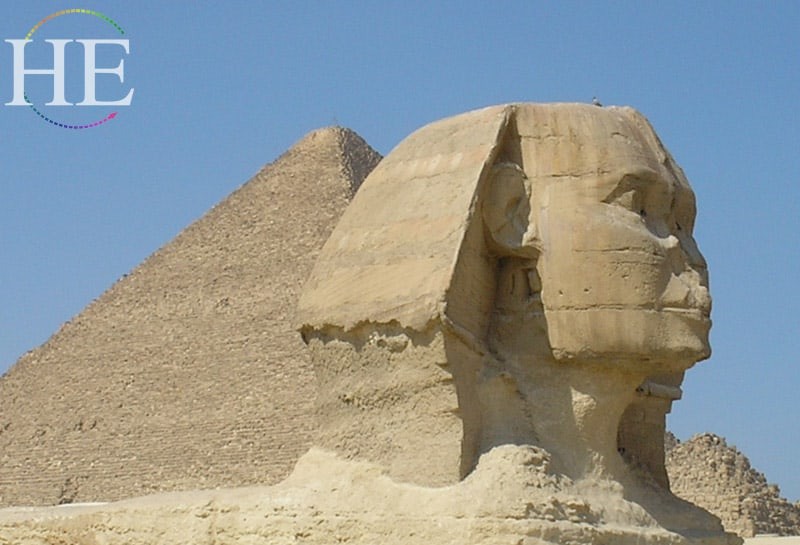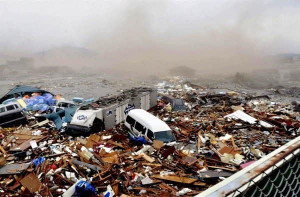
 As I look back on the 10 years since I bought Hanns Ebensten Travel, the theme I would give to this decade is resiliency. On September 10, 2001, my client and good friend Dr. Don Butterfield said that I had had things pretty easy – I wouldn’t know what I was made of until I was tested by a crisis. Twelve hours later, that crisis struck with the attacks of 9/11. Locations I was quite familiar with in New York City and Washington DC had been attacked and my world was transformed. Tours to Egypt and Morocco in the Arab world scheduled for that fall were simply not going to happen, and I wondered how I could run my company and survive.
As I look back on the 10 years since I bought Hanns Ebensten Travel, the theme I would give to this decade is resiliency. On September 10, 2001, my client and good friend Dr. Don Butterfield said that I had had things pretty easy – I wouldn’t know what I was made of until I was tested by a crisis. Twelve hours later, that crisis struck with the attacks of 9/11. Locations I was quite familiar with in New York City and Washington DC had been attacked and my world was transformed. Tours to Egypt and Morocco in the Arab world scheduled for that fall were simply not going to happen, and I wondered how I could run my company and survive.
But of course, survive we did, and just four months later our first group was back in Egypt – Dr. Butterfield and 18 of his friends. The most common word our travelers used to describe that tour was hospitality – the Egyptians were just so gracious in welcoming our group to tour in their country.
Because our specialty is running tours to far-away lands, when bad things happen around the world, they very often affect the destinations of our tours. But when we make our return visit, the resiliency of our friends around the world is amazing to watch.
The 2004 Indian Ocean tsunami had a profound effect on the Thai resort island of Phuket and on nearby Phi-Phi Island where I once spent a morning snorkeling among the marine life of a beautiful bay that became a death trap when the waters suddenly rose. By now, however, much has been rebuilt, and the region is again welcoming visitors.
When there was an outbreak of the mysterious and unpredictable disease SARS in 2003, we chose to postpone our tour to China for five months from April to September. By the time we reached China, as some of the first Western visitors since the SARS outbreak, we received amazing service, since our Chinese hosts and guides were so happy to welcome us back.
All too often, Israel is in the news due to events inside Israel proper, due to skirmishes with Hamas on the southwestern border with Gaza, or with Hezbollah just across the Lebanese border. In 2006, we sent a group to the WorldPride festivities in Jerusalem during one of those times of crisis, but our Israeli partners Kenes Tours and the New Israel Fund were able to re-arrange our itinerary to add a visit to a Bedouin community in the Negev Desert, replacing our planned visit to the north. During our 6 tours since, our Israeli and Jordanian hosts have always shown us a warm welcome.
In March 2010 we had a small group headed to Easter Island just a few days after an earthquake disrupted Santiago Airport and caused severe damage south of Santiago. Since all of our tour members had to pass through Santiago, they spent the night in Santiago before their flight to Easter Island. Their flight wound up being delayed a day, and check-in procedures were conducted in a tent due to the terminal damage. They did make it to Easter Island finally, partly due to the diligence of LAN Chile staff to make sure they weren’t standing in a line when the plane took off.
And most recently I have been watching my second homeland, Japan, come to terms with the effects of the earthquake, tsunami and nuclear power plant disasters of early 2011. While some of the affected coastal towns may never be rebuilt (including the beautiful towns of Onagawa and Matsushima that I visited with the Railroad Club of my Japanese high school in 1972), residents in Tokyo and other cities farther away are slowly getting back to their routines. They will soon be ready to welcome visitors in the areas far away from the epicenter.
But I also see a profound change taking place in the Japanese psyche. They have long assumed that because they took earthquakes so seriously, even the strongest quake would only do minimal damage. Actually, Japanese buildings and other infrastructure DID hold up very well overall from the original earthquake.
In 1987 I came to see how seriously Japanese take earthquake preparedness when I participated in a Japanese speech contest for foreigners put on by the Roppongi Fire Protection District of Tokyo. Eleven of us from the US, Netherlands, China, England, Korea, Singapore and Senegal each wrote a 4-minute speech about how we personally prepare for earthquakes. I talked about the rope ladder on my balcony, the fire extinguisher in my kitchen, and the fact that all my knives were in drawers and not fastened to the wall. (I guess the judges liked my comments and sense of humor, since I won the contest and a beautiful Japanese doll that still adorns my living room!)
What is now apparent is that despite millenia of data about tsunamis, the Japanese did not expect or plan properly for the level of tsunami which the strongest earthquake could produce. There is now a severe crisis of confidence among Japanese who must ask themselves whether Tokyo, Osaka and the other major population centers are indeed ready for their own “big one”. This crisis may in fact end the complacency which has been in place for a couple of decades, and propel Japan in some positive new directions.
A good example of how Japanese are pulling together is what a Japanese friend told me about a Sendai restaurant owner who escorted his guests to safety during the earthquake, then had to close his restaurant due to damage. Within 24 hours, each of his guests had returned to pay their bills – whether they had actually received their food or not. This is the Japanese spirit of cooperation and mutual respect that I have seen since my AFS exchange student year at Waseda University High School in 1972, and it is what will pull them through the challenges of today.
This story also exemplifies the spirit of common values that I have seen in over 70 countries around the world. This resilience is what inspires my work each day, and I look forward to creating many new experiences for our travelers in the decade ahead!

